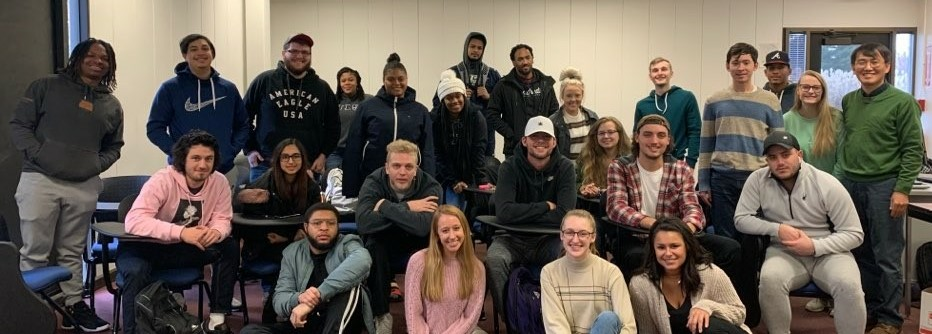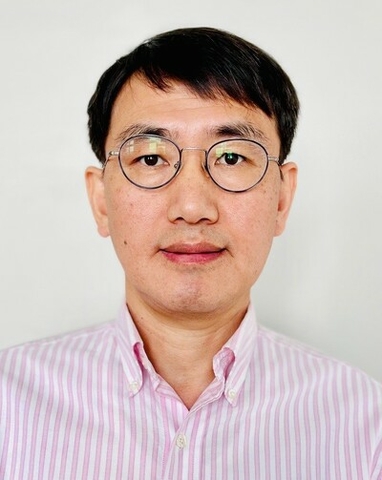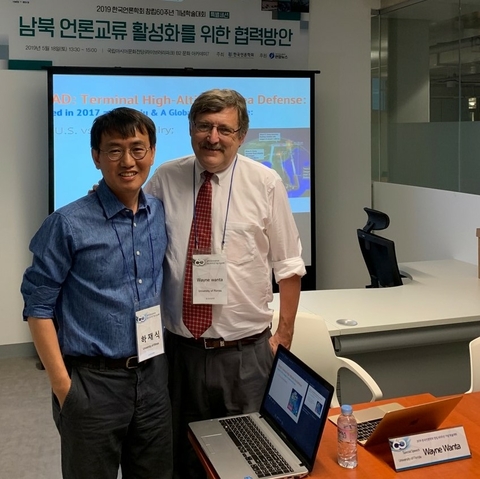

Hello, I’m Dr. Jae Sik Ha, an Associate Professor at the UIS School of Communication and Media. Before joining UIS in 2014, I was a Visiting Assistant Professor at the University of Wisconsin at River Falls. I earned my Ph.D. in Mass Communications from the School of Journalism, Indiana University at Bloomington, in July of 2013.
I have a background in professional journalism. As a reporter for The Joongang Daily in South Korea, I reported for ten years on a variety of subjects ranging from crime, the judicial system and non-governmental organizations to celebrity news and the financial markets. This experience not only informs the scope of my teaching, but also enriches my passion and profession as an educator.
My research and teaching focus on the relationships between media and society. At UIS, I have integrated theories, methods, and real-world practices into the classroom. I am currently teaching Fake News and Fact-Checking (COM 461), Global Media and Communication (COM 479), Research Methods in Communication (COM 506), Entrepreneurial Journalism (COM 452), Media and Social Change (COM 341), etc.
My scholarship has engaged various disciplines, such as journalism studies, media sociology, global journalism, political communication, and international communication. I have pursued synergistic and interdisciplinary research which combines both qualitative and quantitative methodologies. My foremost research interest is the exploration of the connection between media and globalization. I have a particular interest in not only the study of comparative media systems, but also the comparative analysis of news organizations and newsworthiness. It was in this context that I analyzed the media representations of the Arab Spring. The focus of this project was to investigate not only the differences and similarities between the U.S. and South Korean news media framing, but also the major elements (e.g., metaphors, exemplars, catchphrases, and depictions) used to construct those frames. I have also been actively working on a research project related to how the issues of gender, culture, ethnicity, ideology, and religion are situated within the contexts of media and their potential for contributing to social change and the democratic process.
In the current “post-truth” era, I have expanded the range of my research into explorations of the fake news phenomenon and its impact on journalism and democracy. This research interest resulted in the publication of a book (entitled The Fake News War) in the fall of 2019. Considering the significant impact that fake news has had on democracy and global affairs, fake news is an important and timely topic for research, since journalism is such an indispensable element in the maintenance of democracy.

At an academic conference held at Gwangju, South Korea in 2019, Dr. Ha posed with Dr. Wayne Wanta, an internationally known scholar in political communication. The conference was organized by the Korean Society for Journalism and Communication Studies(KSJCS).
I have consistently published my research articles in peer-reviewed academic journals, including The Social Science Journal, Journal of Gender Studies, International Communication Gazette, Community Mental Health Journal, Journalism Practice, Atlantic Journal of Communication, Newspaper Research Journal, Asian Communication Research, American Communication Journal, and Information Society & Media. My book chapter, “Internet Game Addiction in East Asia: Challenges & Opportunities” is in the book Mobile Gaming in Asia: Politics, Culture and Emerging Technologies, published by Springer in 2016. My chapter not only examined the current circumstance of game addiction in South Korea, China, and Japan, but also explored the causes of this addiction in those nations.
In addition, I have published my perspectives on media issues in various forms in many professional and journalism publications. These publications include, but are not limited to, Newspaper and Broadcasting (a monthly journal published by the Korean Press Foundation), The Joongang Daily (one of the three largest newspapers in South Korea), and the official blog of LG CNS (a global provider of comprehensive information technology services).
In the Spring of 2020, I received the Faculty Excellent Award in Scholarship from the College of Liberal Arts and Sciences. My academic research on racism, fake news, artificial intelligence, social injustice, media ethics, etc. greatly benefited my students as well as enriched my teaching. In August of 2016, I was awarded the “ICD Teaching Award” (organized by the International Communication Division) at the annual conference organized by the AEJMC (Association for Educators in Journalism and Mass Communication). In the fall of 2014, I applied for a teaching fellowship at the Scripps Howard Journalism Entrepreneurship Institute at Arizona State University. As a result, I was one of fifteen professors selected from across the country.
Overall, as a scholar from Asia, I have conducted a comparative study of international issues by employing various research methodologies in consideration of the need for more comparative research. I would like to deepen my academic research in the areas of media sociology, journalism studies, and international communication in consideration of cultural, national, and geographical differences. Specifically, I want to contribute to developing models (theories) of media systems.


